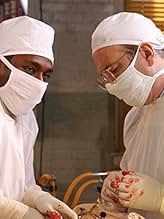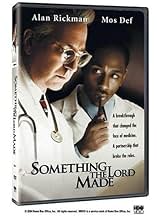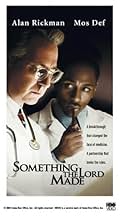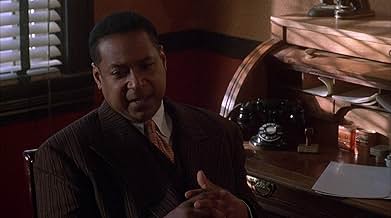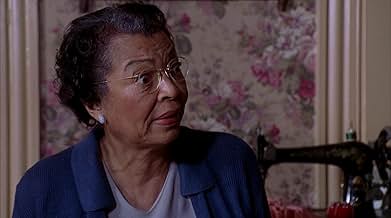A dramatization of the relationship between heart surgery pioneers Alfred Blalock and Vivien Thomas.A dramatization of the relationship between heart surgery pioneers Alfred Blalock and Vivien Thomas.A dramatization of the relationship between heart surgery pioneers Alfred Blalock and Vivien Thomas.
- Won 3 Primetime Emmys
- 17 wins & 32 nominations total
Yasiin Bey
- Vivien Thomas
- (as Mos Def)
Charles S. Dutton
- William Thomas
- (as Charles Dutton)
- Director
- Writers
- All cast & crew
- Production, box office & more at IMDbPro
Storyline
Did you know
- TriviaAccording to a Johns Hopkins Medical Archives website about Blalock, Thomas, Taussig, and the Blue Baby surgeries, Eileen Saxon, the infant depicted in the movie as the first to undergo the procedure, became cyanotic again several months later. She died after another attempt at the surgery. Her experience helped the surgical team determine that the procedure worked best on patients who were over 3 years old.
- GoofsWhen Reader's Digest publishes a photograph of the first operation, one participant is identified as Dr. Michael DeBakey. Although he was a professor at Tulane, he was on leave as a consultant to the Surgeon General in Washington.
- Quotes
Alfred Blalock: Where you see risks, I see opportunity.
- ConnectionsFeatured in The 56th Annual Primetime Emmy Awards (2004)
- SoundtracksBoogie Woogie Bugle Boy
Written by Hugh Prince (as Hughie Prince) and Don Raye
Performed by The Andrews Sisters
Courtesy of MCA Records
Under License from Universal Music Enterprises
Featured review
In 1930, the skilled carpenter Vivien Thomas (Yasiin Bey) loses his job and is hired by the arrogant Dr. Alfred Blalock (Alan Rickman) as a janitor in Vanderbilt. But soon Vivien is promoted to lab technician due to his skills. Vivien expects to join the medical school but his savings are lost in the Great Depression. Dr. Blalock moves to the Johns Hopkins University and brings Vivien with him. Along the years, they develop the bypass surgery using dogs as guinea pigs. When they save the first blue baby, their surgery technique becomes a worldwide success. But Vivien has no credit for his accomplishment. Will time correct this omission?
"Something the Lord Made" is a wonderful film that discloses the story of the first bypass surgery. The situation of Vivien Thomas is heartbreaking, in a period of great racism in the United States of America. The conclusion of this true story is gratifying and moving. My vote is eight.
Title (Brazil): "Quase Deuses" ("Near Gods")
"Something the Lord Made" is a wonderful film that discloses the story of the first bypass surgery. The situation of Vivien Thomas is heartbreaking, in a period of great racism in the United States of America. The conclusion of this true story is gratifying and moving. My vote is eight.
Title (Brazil): "Quase Deuses" ("Near Gods")
- claudio_carvalho
- Apr 19, 2019
- Permalink
Details
- Runtime1 hour 50 minutes
- Color
- Sound mix
- Aspect ratio
- 1.78 : 1
Contribute to this page
Suggest an edit or add missing content

Top Gap
By what name was Something the Lord Made (2004) officially released in Canada in English?
Answer
